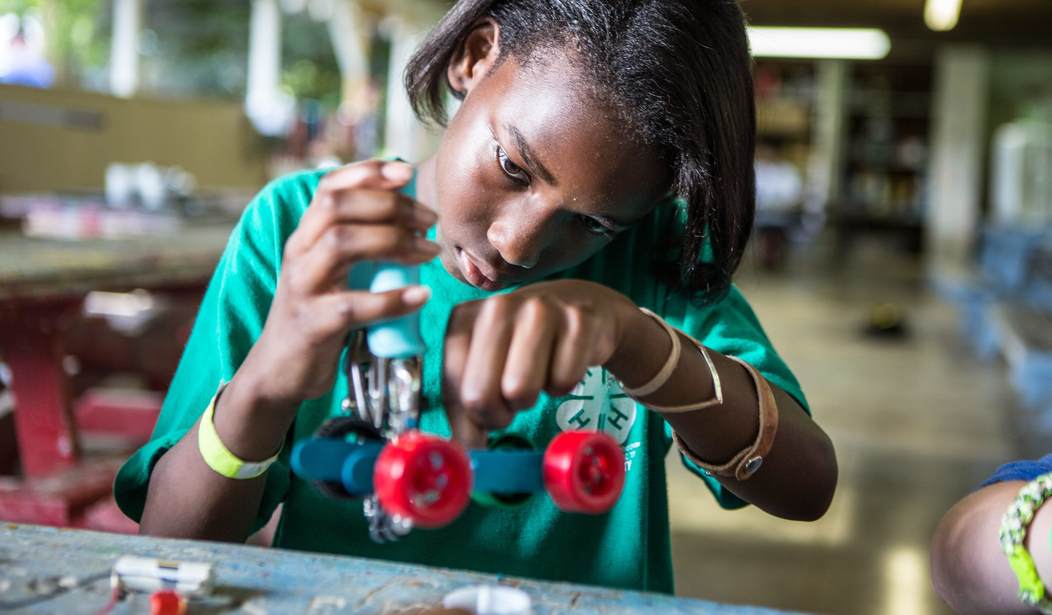4-H stands for head, heart, hands, and health. Programs exist across the country to help children grow their four “Hs” and develop a sense of community and love of learning.
Before I dive into all the benefits for children, I want to dispel a major myth about 4-H: It is not just for farm kids. Yes, there are agricultural projects, but 4-H can also include science, home economics, engineering, and civics options. Any child, regardless of location, background, or career interest can benefit from the program.
4-H programs can vary from state to state, but the easiest way to get involved is to find a local club at www.4-h.org. Frequently, programs will be managed as an extension of a major university of your home state. For example, The Ohio State University manages the programs in Ohio. Children as young as kindergarten can join Cloverbuds.
Participants can choose from a wide variety of projects. If they’re interested in science, they can pick projects in robotics, rocketry, or environmental science. Or they can focus on cooking, entrepreneurship, physical fitness, or leadership. And of course, there are agricultural projects, everything from growing vegetables to raising livestock. Typically, these projects are then judged at a local venue, such as your county fair.
The reason 4-H becomes such a powerful program is that many of the projects are designed to be self-led, although parents and adult mentors with a background in the subject matter are encouraged to get involved. Each project has an established curriculum and the children can proceed through the projects at their own pace (however , they are all designed to be completed within 6-8 months). Children can take on multiple projects at once.
The projects are design to be both fun and educational and kids participate through a club for joint support and learning. The club is led by 4-Hers who have been elected by their fellow club members. Many groups also volunteer for community service projects.
Now is the time to start thinking about joining 4-H. Most programs run through the summer when kids are out of school. Keep in mind that if your child is interested in projects that involve growing things, such as plants or animals, you will need the time. You may also want to do some research on local clubs. Some are large and provide resources to support any kind of project. Other clubs may be smaller, focusing on specific types of projects such as raising horses or home economics.
There are cases where a child is interested in raising an animal, but the home situation is not conducive to an animal project. Don’t worry. You can usually find a mentor who is willing to lend barn space. Your local club will be more than willing to point you in the right direction.
4-H can provide experiences that are fun, educational, and challenging. Kids can pick projects that will help give them a sense of what they want to do with their careers, and at the same time will instills a sense of responsibility and leadership in the community. And at the very least, it will give your kids something to occupy their time over the summer.










Join the conversation as a VIP Member